How much do the Selling Sunset houses cost? And other important real estate questions
Is it good for us to aggressively Google what it would cost to live in a luxury mansion in Beverly Hills? Probably not, but we’re going to do it anyway.
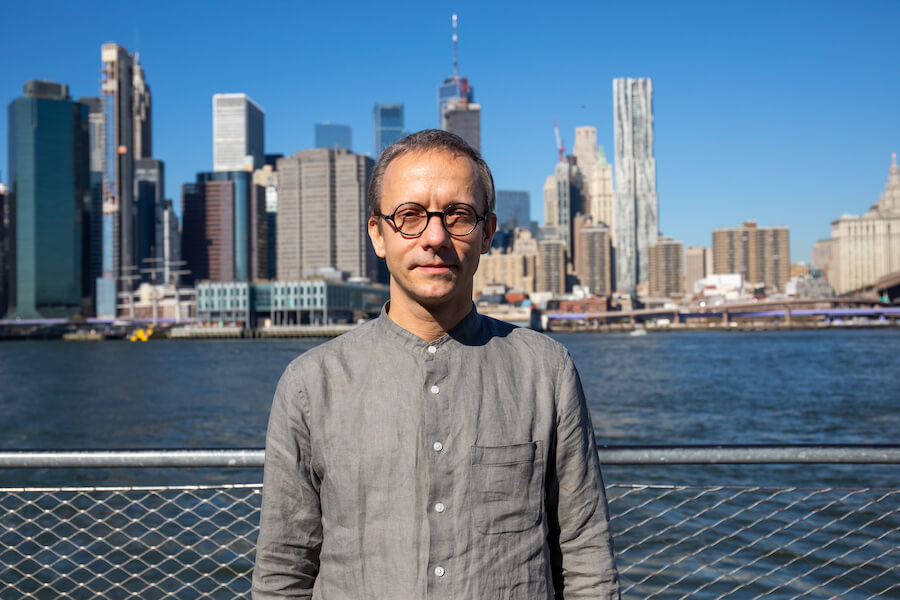
Alex Dodge is a New York-based artist with work in MoMA and the Whitney. His formative memory is visiting the World Trade Center a week before 9/11, the strangeness of which bound him to NYC,but still haunts him. 2 decades later, he’s uprooting his life to build a studio in Japan. He talks life, love and art without borders.
Wise is a new way of managing your money internationally for a fraction of the price of a bank or PayPal. In our Lives Without Borders series, our customers and community share how their careers and lifestyles have transcended borders.
Everything just seemed amazing. Then the bottom dropped out.
It was the first week of September 2001, and a friend and I found ourselves in lower Manhattan looking for jobs. We said—you know what, let's go to Windows on the World, the bar at the top of the World Trade Center. So we went up, had a martini, tried to play the Wall Street stereotype. We actually tried to walk down, got to floor 84 and were completely out of breath. It’s so strange to look back on that now.
A few days later everything changed. I could see the Trade Centers and the smoke from my apartment in Williamsburg. I thought it was an accident, so I went to work—I was working as an art handler for a gallery in Chelsea. We saw all the Metro buses being used as ambulances, that was when the gravity of the situation really started to sink in. When I got to the gallery to help with an installation for a Canadian artist named Rodney Graham, an amazing artist, he was panicking: “I've got to get back to Canada.” I said, “I don't think you're going back to Canada anytime soon.”
That's when I realized that New York is where I want to be. I grew up in Denver, Colorado, and I was really on the fence about whether or not I wanted to be in New York. They say that going through a traumatic experience bonds you with people—and with the place. A wonderful community developed after September 11th.
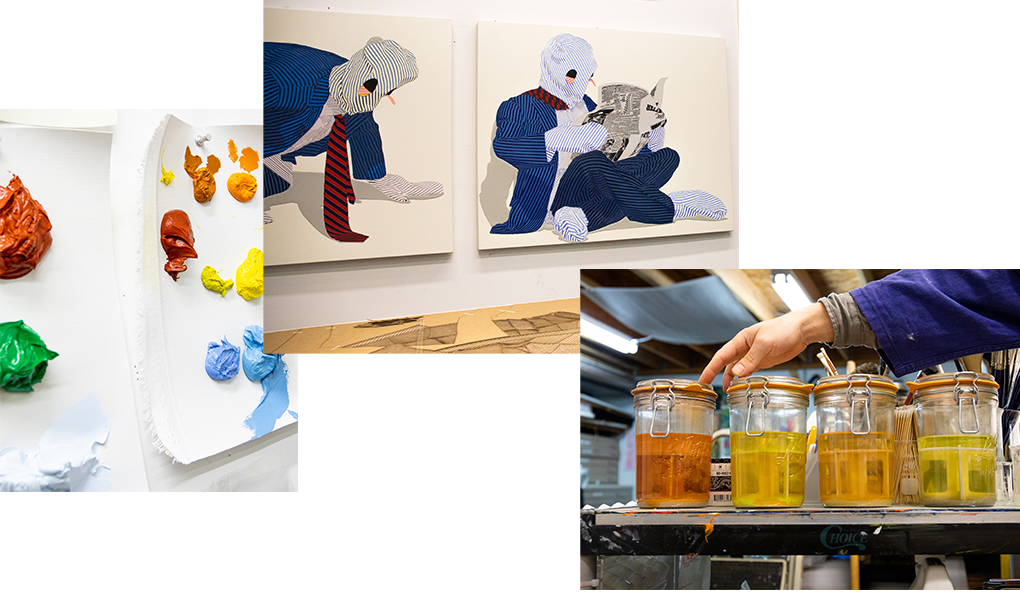
I was working in the gallery world, and you could feel that there was this great energy. And so much diversity, too. It helped us all grow and become better, not just as artists but as people. I was a daytime art dealer and in my studio in the evenings. My work got into MoMA and the Whitney collection. Everything just seemed amazing.
Then it got to the 2008 recession, and another transformation. The train really kind of came to a halt. A lot of people from hedge funds had been buying art as speculative investments, there was no long term sustainability in mind, the bottom dropped out and all of that support dropped out with it. It was really just the mega galleries left in Chelsea—Gagosian, Pace, Zwirner—who were able to devour all the scraps. It was that moment when I realized—you're either going to be a dealer or you're going to be an artist. For me, it's definitely more fun to be an artist.
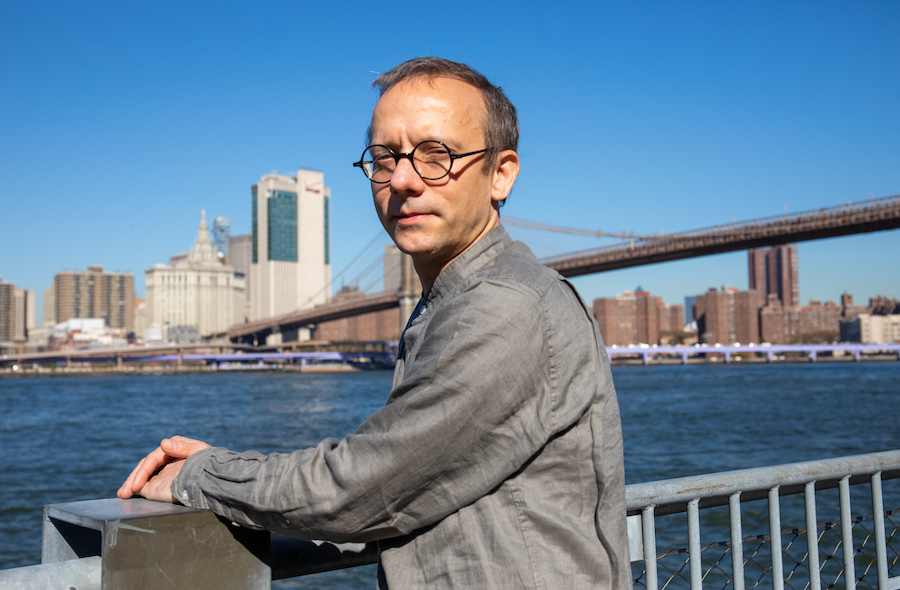
After the tsunami, we said—“Let's get married today.” Everyone was doing the same thing.
Around that time, I went to Tokyo. At a friend’s jazz concert, I met my now-wife, Satoko. She came to New York, we hung out; I went back to Japan, we hung out some more. Things clicked and we started dating. But it ended up being two and a half years of long distance.
We got married right after the tsunami in 2011. I flew over there as soon as I could, and that was when I realized how bad it was. People were unsure about Fukushima. We’d been talking about possibly getting married, so we said—let's go to the Prefecture office and skip to marriage today. Then we went to the US embassy and everyone was doing the same thing. It was crazy. But she was able to get a green card and move to New York.
Now we’re moving to Japan. New York is great, but we both decided we want more time in Japan, and we were able to get a house outside Tokyo. We really don't know what this means, yet. It's exciting, but it's also daunting. I can't let go of New York just yet. I love being here, I have a community here. I lack that there. I have good friends in Japan but not so much in the art world.
When the reality of it comes down to it’s like—you have to set up internet, utilities, get a Japanese driver's license, all of these little details. I've been going there since 2003 so I'm familiar with it, to a degree, but not enough.
We’re setting up a studio just outside of Tokyo, which has always been a dream. I love the art scene there. I had my first show in Tokyo last March and it went really well. I was thrilled. Making a living from your art is such a remarkable thing to happen at all, let alone in Japan as a foreigner.
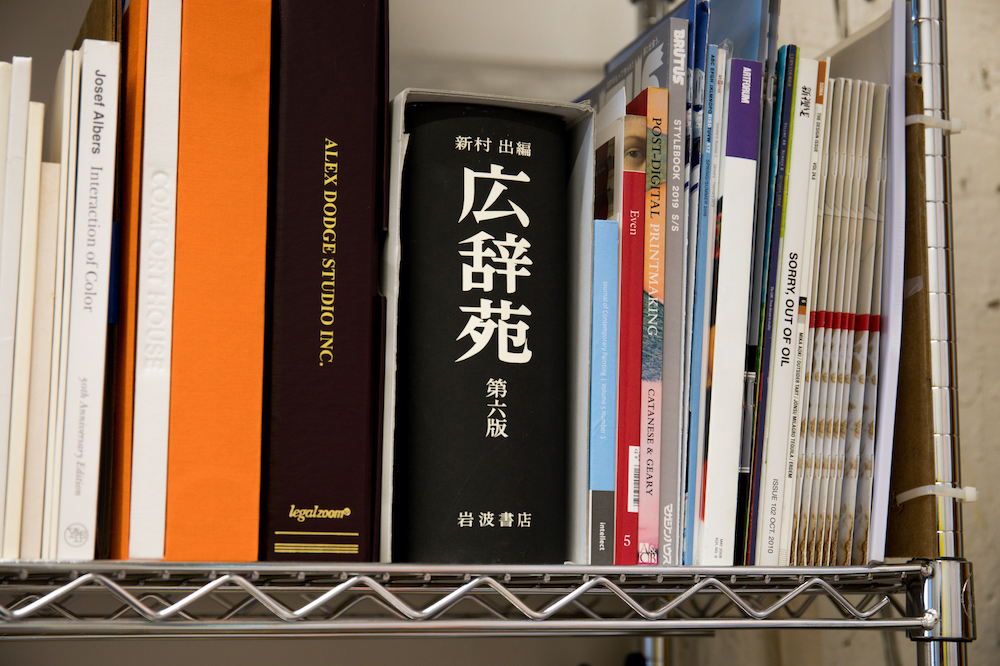
That’s where you then end up with this problem: How do I get the money back to the US? Thankfully my wife had used Wise for her handbag, brand HATORI, and she suggested the gallery in Japan pay me that way. It worked out great, everything was clear and transparent. We have a split life between New York and Japan, and Wise is essential.
My connection to Japan really started by mistake. When I was a freshman in high school, I had to pick a language class and I noticed Japanese. I wasn't a Japanophile, I took 1 year of Japanese lessons, and thought nothing of it. Later, while working at a gallery, I was working with Japanese artists, so I had to go over there and do studio visits. So there were more reasons to go there, and I just came more and more enamored with the culture and the place.
Tokyo is a global city like New York and London. There’s a reason art thrives in cities like that: diversity, tolerant people, and money, to drive those markets and cultural exchanges.
One of the most things that art does in society is to create noise between cultures. Noise is usually considered a bad thing in communication, but actually, there's a really beautiful part—in terms of misunderstandings or mis-perceiving one culture alongside another. For example, Japan heard western psychedelic music from the 1960s and 70s, but interpreted it differently and it became its own, unique thing. That’s what I’m hoping to see in my work—I’m excited to see how my art will be heard in Japan.
| Wise is proud to help Alex get paid, and we're there to help you manage your money across borders more cheaply and easily too. Join our 6 million customers at Wise.com, or download our Android or iOS app. |
|---|
As told to Chris Hockman, exclusively for Wise.
Photography by Stephanie Stoddard Cortés.
*Please see terms of use and product availability for your region or visit Wise fees and pricing for the most up to date pricing and fee information.
This publication is provided for general information purposes and does not constitute legal, tax or other professional advice from Wise Payments Limited or its subsidiaries and its affiliates, and it is not intended as a substitute for obtaining advice from a financial advisor or any other professional.
We make no representations, warranties or guarantees, whether expressed or implied, that the content in the publication is accurate, complete or up to date.
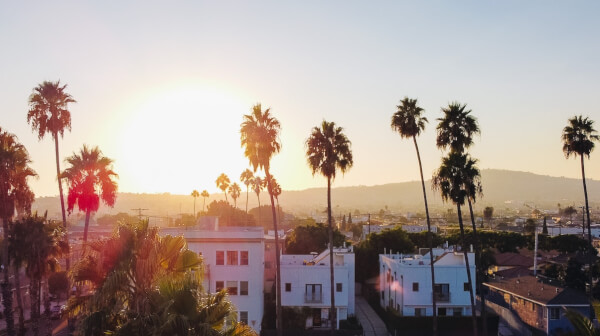
Is it good for us to aggressively Google what it would cost to live in a luxury mansion in Beverly Hills? Probably not, but we’re going to do it anyway.

Living abroad comes with its own challenges but in that, its rewards and opportunities — whether they are professional, personal, or financial. We spoke to...

After working in Japan and the United States, Creative Director Ben Sheppee returned to London to open a studio and develop his business. His innovative work...
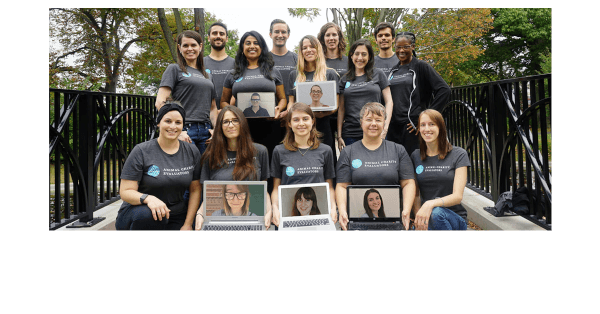
Seven years into her career as an engineer, Gina Stuessy decided she wanted to have more of an impact on the world. So she took the plunge, quit her job, and...
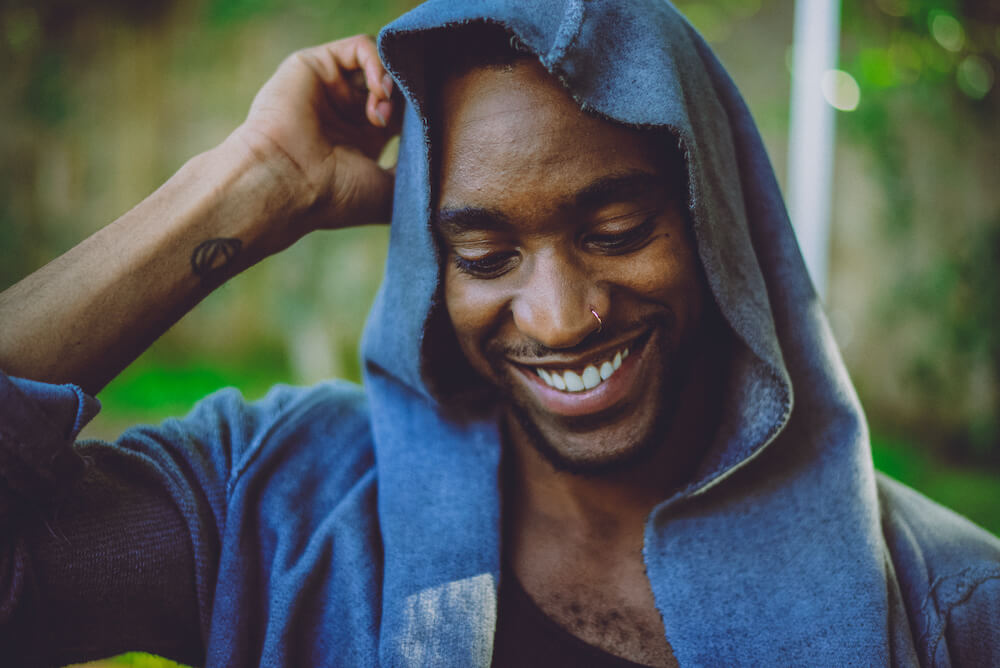
After spending almost a decade working in fashion and the movie industry in Los Angeles, Dominique V. Richardson sought a change. He packed up his bags and...
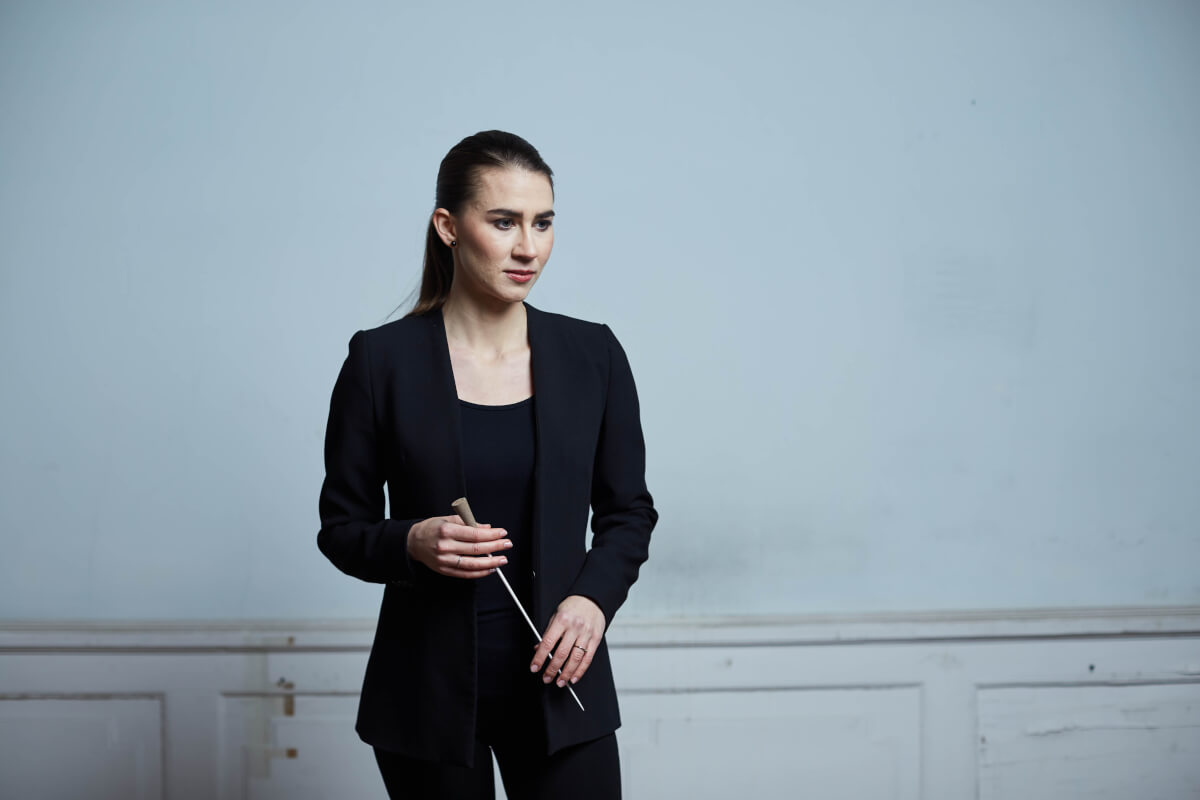
For Polish orchestral conductor Marta Gardolinska, sitting on a plane is just part of the job. At least, it was until COVID-19 cancelled concerts around the...